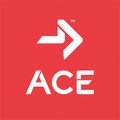Last Updated February 9, 2024 (originally published November 30, 2016)
Adequate protein consumption is essential, whether you’re an older adult looking to maintain muscle mass as you age, you are an athlete or regular exerciser looking to build muscle or you have recently started taking weight-loss medications, in which case you’ve probably heard a lot about the importance of eating more protein. You probably have questions. Does eating more protein help you lose weight? Does protein build muscle? What are the other benefits of eating more protein? Read on to learn five reasons to add more protein to your diet.
1. Stop the hunger. The ingestion of protein triggers a specific hormonal response in the body that suppresses appetite. This appetite suppression is observed through self-reported feelings of decreased sensations of hunger, reduced desire to eat, reduced food consumption and increased feelings of fullness and satiety. A cascade of hormonal responses curbs your appetite and leads to reduced overeating, appetite suppression, slowed gastric emptying and increased satiety, meaning that you will eat less, digest more slowly and feel full longer.
2. Increase your metabolism. Consuming greater amounts of protein increases energy expenditure. Daily energy expenditure occurs in three ways:
-
Resting energy expenditure (REE): The calories you burn while at complete rest
-
Diet-induced energy expenditure (DIT): The increase in caloric expenditure that occurs after eating to support nutrient absorption, metabolism and storage
-
Activity-induced energy expenditure: The caloric expenditure that occurs during physical activity
Typically, DIT makes up 0 to 3% of total energy intake for fat, 5 to 10% for carbohydrate, and 20 to 30% for proteins. In other words, dietary protein increases energy expenditure because it requires more calories to digest, absorb nutrients, and store than fat or carbohydrate. Protein also preserves REE by preventing lean muscle mass loss (more on that below).
3. Increase and maintain muscle mass. Post-workout protein intake, along with adequate consumption of protein throughout the day, is important for repairing, building and maintaining lean muscle mass when used in combination with physical activity and when cutting calories while dieting. Research shows that eating adequate amounts of protein impacts muscle hypertrophy, strength and function. Research also shows that maintaining appropriate protein intake when cutting calories as part of a weight-loss diet preserves muscle mass rather than the body breaking down muscles for energy.
4. Improve mood. What you eat may influence the way you feel. Research shows a correlation between greater consumptions of protein and fat and lower levels of anxiety and depression and higher levels of happiness, wellness and well-being. The rate of nutrient absorption may have something to do with this relationship. Eating protein slows carbohydrate absorption and increases the release of norepinephrine and dopamine, which are both hormones that make us feel good.
5. Maintain cognitive function. According to the Centers for Disease Control and Prevention, one in nine adults in the United States will be challenged by cognitive decline. Protein intake improves working memory and executive function when task demands are high. Research shows that the source of protein may also be an important factor. When it comes to cognitive function, animal protein consumption in populations with plant-dominant diets may help to prevent cognitive decline, while greater levels of plant protein intake may be associated with greater cognitive decline. Specifically, proteins from fish, shrimp and poultry may slow cognitive decline.
If you are interested in learning more about what the scientific literature reveals about the intersection of nutrition and physical activity, check out Nutrition and Physical Activity: When Science Meets Application (worth 0.1 ACE CECs). In this course, you’ll learn about the distinctions among different types of research and how to use an evidence-based approach to help clients achieve their nutrition and physical-activity goals.
 by
by 









